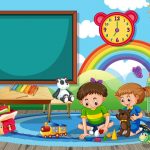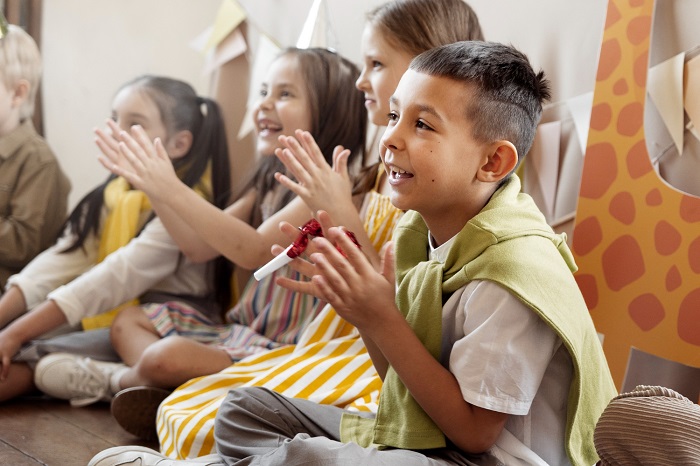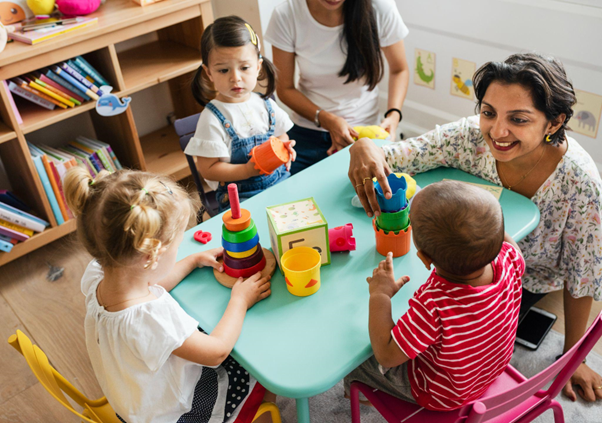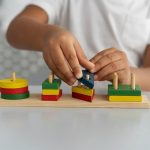Cognition on its own can be unproductive within the simulated environment of a toddler whereby each day seems to present several discoveries and struggles; thus, self-organization becomes vital in the growth of a child. For educators and parents, the development of this inherent capacity will lead to building confident, creative, and emotionally intelligent people. This is about the need to facilitate Self-Expression in toddlers and learn about its types, fun activities to engage the toddlers in and the gains to expect from it.
Table of Contents:
- What is Self-Expression?
- Forms of Self-Expression
- Self-Expression Activities for Toddlers
- Benefits of Self-Expression
What is Self-Expression?
Self-expression is the process of communicating to other people in the most understanding and real way possible their ideas, thoughts and feelings. In the case of toddlers this is rather essential since they are yet to develop certain ways through which they can influence the world around them. The purpose of self- expression is also to describe what is going on in the child’s mind regardless of the stage of speech development they are in.
At its core, self-expression for toddlers is about:
- Communicating needs and wants
- Exploring and understanding emotions
- Developing a sense of self and individuality
- Interacting with others and the environment
As toddlers grow, their ability to express themselves evolves rapidly. From simple gestures and sounds, they progress to more complex forms of communication, including spoken language, artistic endeavours, and physical movements.
Forms of Self-Expression:
Children at this tender age have quite distinctive personalities and different ways of communicating as illustrated in the following ways. Knowledge of these different forms affords parents and caregivers the knowledge on how to properly support and promote their child’s creativity. Some common forms include:
- Verbal Expression:
- Artistic Expression:
- Physical Expression:
- Musical Expression:
- Dramatic Play:
- Emotional Expression:
As children grow a little bit older they use words in order to convey what they are thinking or how they feel. This might involve the emergence of the first words, and or phrases, followed by construction of small and complex sentence structures.
When using the gift of art and producing crude drawings, paintings or sculpture using play dough, the toddlers can display their creativity together with their feelings and attitudes.
Gesture, movement and in particular dance enable children of the age of toddlers to express themselves physically. This can range from jumping up and down while dancing to friendly nod of the head or even wink.
Singing, humming or playing a musical note, an instrument or any musical instrument helps to perform an operation of rhythm – melody.
However, of the observed toddler activities, role-play and pretend play facilitate toddlers to pretend as well as perform and demonstrate their perspective or perception of the world and their ability to feel and think about the world.
Children at this age communicate their emotions through either laughter or crying or other associated reactions that are very essential in their development.
Through acknowledging and embracing the range of options available it is possible to foster development that helps toddlers cultivate their individual style.
Self-Expression Activities for Toddlers:
You do not need to go to great lengths when encouraging self-expression in toddlers. Fresh air and plain fun also offers children plenty of practice in how they can communicate. Here are some ideas to get started:
- Art Corner:
- Dance Party:
- Dress-Up Box:
- Storytelling:
- Emotion Cards:
- Nature Art:
Create an area just for that purpose that has the appropriate art supplies for such ages including crayons, finger paints and large papers. Allow your toddler to play with different colours and material in a way that is not necessarily art based.
Turn on various forms of tunes and remain artistic by allowing your toddler to express himself or herself differently. Blending in to it to make the fun increase and most importantly to encourage everyone to dance as they wish without any restraint.
Pin a variety of clothes, hats and accessories to wear for dressing up. This permits the kid to develop various personalities that he or she wants to assume or express at that particular age.
Promote your toddler into narrating story events either from their day or come up with new events which are fictional. Another way is to use props or pictures to encourage their ideas or creativity.
Make two-three plain cards that have different emotion faces on them. Teach your toddler about these emotions and make it a habit if they ever make silly faces to describe, explain it to you that they feel this or that way.
Take your toddler outside with him/ her then ask him/her to collect natural resources like leaves, pebbles and flowers. These can be used in the making of temporary art that will allow your child to use elements of nature in creating the masterpiece.
Benefits of Self-Expression:
Self-Expression in toddlers brings many positive effects with the tendency of most of them reaching way beyond the toddler’s age. These benefits are towards their development and are the building blocks that provide the basic foundation for success and health later in life. Some key benefits include:
- Emotional Intelligence:
- Confidence and Self-Esteem:
- Creativity and Problem-Solving:
- Communication Skills:
- Stress Relief:
- Cognitive Development:
It is during the stage of toddler that children are able to manage their feelings by stamping them. This ability is important for growth of empathy as well as building healthy interpersonal relationships in future.
This invented self-concept means that when young toddlers are allowed to create their own world, by being allowed to express themselves as and when they feel like doing so, they will have a strong self-esteem. The benefit of this confidence is that it may affect others facets of their lives in the same way as they grow.
Self-Expression activity usually requires creativity hence the ability to solve complex problems is also exercised.
While learning how to express themselves in various forms, they come up with enhanced communication techniques in terms of writing and even body language.
Speaking out is beneficial when it comes to the expression of one’s feelings in order to relieve stress and a fussy temper of a toddler.
Creative activities, including art and games or make-believe play, it not only helps the child to develop memory and attention as well as acquirement capacity.
In conclusion, developing self-expression in toddlers is a vital aspect of early childhood development. By understanding what self-expression means for toddlers, recognizing its various forms, engaging in supportive activities, and appreciating its far-reaching benefits, we can create an environment where young children thrive. Remember, every child is unique, and their journey of self-expression will be as individual as they are. The most important thing is to provide love, support, and plenty of opportunities for them to discover and share their inner world with those around them.
For more such interesting blogs, Visit EuroKids














